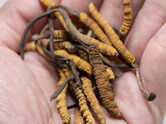01/9Bowel movements can define health risks

Did you know that your bowel movements can tell you a lot about your gut and colorectal health? While many may ignore their bowel pattern, the time spent passing stools, consistency, etc. can be warning signs of an underlying disease. This Colorectal Cancer Awareness month, let us spread awareness around 6 changes in bowel movements that can signal towards colorectal cancer.
If you are one of those experiencing change in bowel movements off lately – like constipation or facing pain in the stomach, then it is highly recommended not to ignore such symptoms at any cost and need to visit your doctor at the earliest. This can be an early indication of Colorectal Cancer.
02/9What is Colorectal cancer?


Dr. Satheesh CT, Senior Medical Oncologist, Spandana Oncology Centre & HCG Bangalore says, “Cancer in the large intestine is called colorectal cancer or colon cancer. Usually, this cancer occurs in the colon area and may also affect the rectum area. Hence, depending on the affected areas in the large intestine, it can also be referred to bowel cancer or rectal cancer.”
Although colorectal cancer can affect anyone, lately, many young Indians are being diagnosed with colorectal cancer due to multiple factors. The diagnosis of colorectal cancer is delayed due to lack of early cancer specific symptoms. With this, most of the cases are diagnosed by medical professionals when the tumour has spread significantly.
Hence, one should take note of six changes in bowel movements that can indicate early signs of colorectal cancer:
03/9Constant pain while passing stools:


This is one of the commonest symptoms, which is ignored majority of the times assuming gastrointestinal issues. Also, one may experience abdominal pain or cramps or pain in the bowel area. This is due to the blockage in the colon area which makes it difficult for the person to pass stools. If the pain persists even after passing stools, one should consider visiting their doctor for further consultation.
04/9Bleeding while passing stools:


“Again, this is one of the common symptoms that is often mistaken as constipation. However, one needs to differentiate the symptoms. While constipation bleeding is not recurrent, internal bleeding due to colorectal cancer is a regular symptom which keeps worsening if ignored,” says Dr. Satheesh.
05/9Diarrhoea:


Many times, one experiences changes in bowel habits and change in consistency of stool or the tumour in the colon can secrete pus-like fluid, resulting in diarrhoea. In some cases, the diarrhoea can be chronic, resulting in fatigue for the patients.
06/9Constipation:


In some of the early cases of colon cancer, the tumour in the large intestine can block the passage for the stools, resulting in constipation. Hence, one can experience persistent constipation as an early symptom of colon cancer.
07/9Narrower stool:


As an early symptom of colon cancer, one can experience narrower stool, as narrow as a thin stick or a pen. This can be primarily due to tumour that is causing the blockage in the large intestine. Now, often this symptom is assumed to be due to constipation or due to excessive fast food and sedentary lifestyle. However, it is recommended that one keeps a track of their bowel habits and consult their doctor in case the symptom continues.
08/9Feeling of uneasiness even after passing stool:


Due to the cancer tumour present in the colon and its blockage one may experience a feeling to poop often which is called Tenesmus. This can be explained as a feeling of uneasiness and the urge to empty the bowel, in spite of passing stools.
09/9Other symptoms:


Nausea: As the stool passage is blocked, one may experience vomiting as a symptom.
Low haemoglobin: With intestinal bleeding and loss of blood in the stools, one may experience low levels of haemoglobin or even Anaemia. This can further lead to paleness on the face and palms.
Unexplained Fatigue: Often, fatigue is a resultant of persistent Diarrhoea and decreased physical activity.
According to Dr. Satheesh, With good eating habits, early diagnosis and right treatment, one can defeat colorectal cancer and can lead a normal life. Hence, one should keep monitoring their gut health and equip oneself with right information on noticing changes in bowel movements, if any.































































































closecomments
SIGN IN WITH
FacebookGoogleEmail